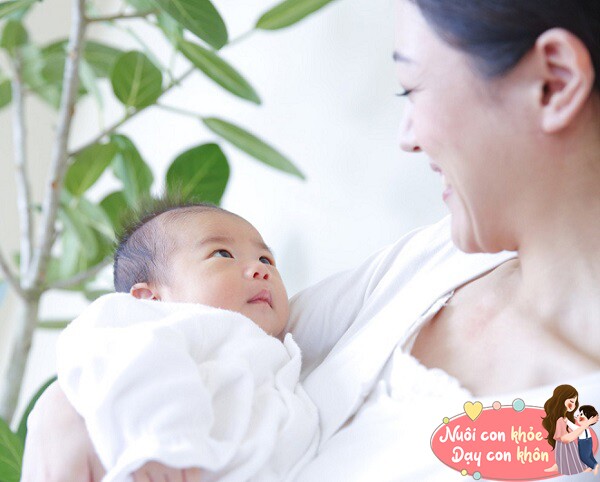On the contrary, if a child wakes up crying or fussing, it reflects underlying issues. The child may not have had enough sleep, or had a bad dream, leading to anxiety and restlessness upon waking.
In fact, there are four main differences between a child who cries and one who smiles upon waking up. Parents should be aware of these differences to better understand their child’s personality and mental state.


Different Personalities
Research by Alexander Thomas and Stella Chase (child psychology professors and pediatricians in the US) indicates that newborns will display various personalities and temperaments soon after birth, and these temperamental traits are quite stable.
Infants who cry upon waking tend to be impatient. They want their milk and to be held by their mother immediately upon waking, and they don’t have much patience to wait.
To put it simply, this is impatience. For example, if their mother doesn’t come to them within 5 seconds of waking, the child will cry.
On the other hand, babies who smile upon waking are quite different. They can entertain themselves for a while and are generally more calm and patient.
Parenting Tip: For impatient children, parents should work on establishing consistent sleep and wake-up routines. For children with a positive outlook, allow them more time to explore and engage with their surroundings independently.

Sense of Security
Infants who cry upon waking up are like little animals suddenly finding themselves in an unfamiliar environment, hence the crying to confirm “Is it safe here?”
Babies who smile upon waking feel like they are in a familiar, cozy nest. They are full of trust and respond with a smile, “I’m safe.”

Different Emotional Expressions
According to a survey in China, among 100 babies, 78% of those who cried upon waking continued to be fussy during diaper changes, as if the whole world was against them. In contrast, 65% of babies who smiled upon waking would patiently wait for someone to change their diaper, sometimes even babbling away.
This reflects two different ways of handling emotions.

Different Communication Skills
According to a research group, babies who cry upon waking tend to wait for others to hand them toys during group play and rarely take the initiative. In contrast, babies who smile upon waking enjoy taking the lead and playing with others, almost like little social experts.
These two reactions upon waking are the earliest forms of social interaction for infants.
For the baby who cries, it is a call for attention. Crying tends to elicit a stronger response from others. While this may seem passive, there are benefits to this behavior. Looking at it positively, when faced with challenges in the future, this child will not struggle alone but will know to call for help directly.

Parents need to be attuned to their child’s cues.
Infants who smile upon waking will use their positive outlook to attract attention and tend to be more proactive in communication and making friends.
In reality, parents shouldn’t worry too much about whether their child cries or smiles upon waking. What’s more important is understanding the nuances and meanings behind each cry or smile. Every tear may be a call for attention or a basic need, while a smile reflects joy and excitement for a new day.
Parents need to be attuned to these cues and respond appropriately to meet their child’s needs. This helps the child feel loved and protected, creating a safe environment.
When parents are sensitive to their child’s signals, their relationship strengthens, and it also contributes to the child’s healthy psychological and emotional development.






































